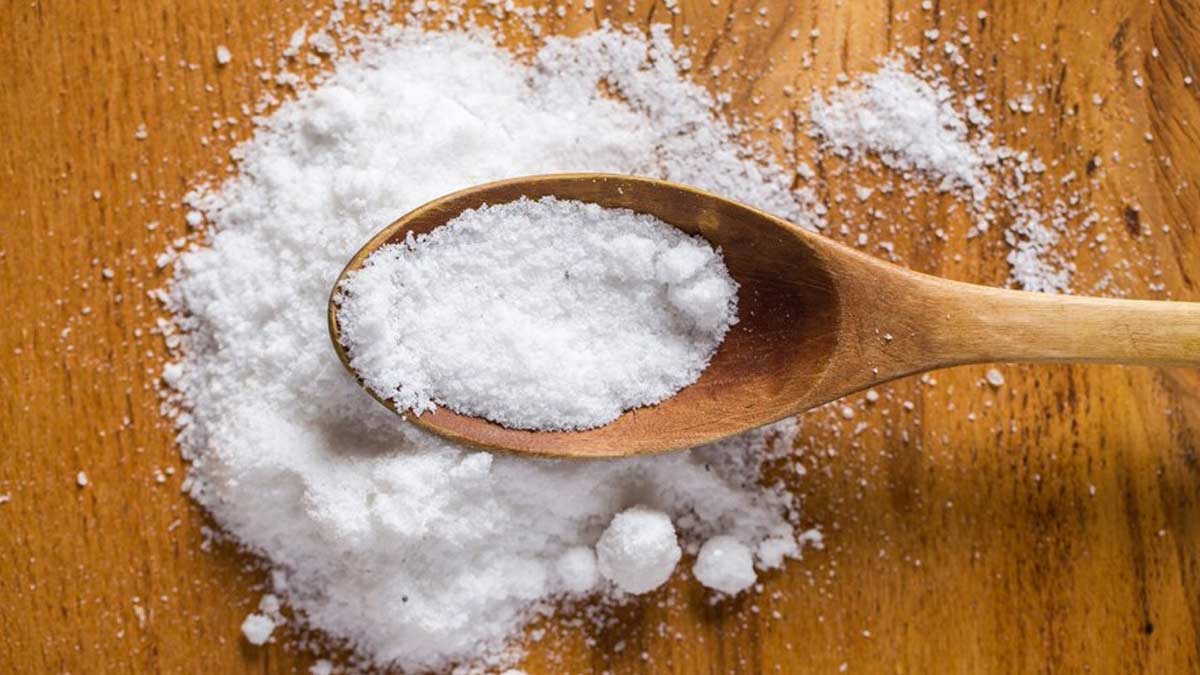
Salt is an essential part of our diet. Not only does it add flavour to our foods, but it also helps maintain a proper balance of water and minerals in our body.
However, most people consume more salt than is actually required.
Table of Content:-
According to the American Heart Association (AHA), adults need no more than 1,500–2,300 mg of salt or sodium per day. Exceeding this limit can backfire and lead to various health complications.
It is also important to note that excess consumption can be a result of salt cravings, which can signal certain medical conditions. Speaking with the OnlyMyHealth team, Preeti Nagar, Dietician at Noida International Institute of Medical Sciences and Hospital, Noida International University, shed light on the same.
Also Read: What Happens To Your Body When You Have Too Much Sugar: Side Effects
Addison's Disease

Addison's disease, or adrenal insufficiency, is a rare genetic disease that occurs when the adrenal gland fails to produce enough of the hormones cortisol and aldosterone. As these hormones start to decline, your body also begins to lose sodium. Your kidneys start to leak sodium, leading to symptoms such as severe weakness, abdominal pain, low blood pressure, and salt cravings.
Bartter Syndrome
According to the National Organization for Rare Diseases (NORD), Bartter syndrome is a genetic condition that impairs kidney functions and impacts its ability to reabsorb salt and other electrolytes, such as potassium, calcium, magnesium, and chloride. Hence, this condition can also trigger an intense desire to consume salty foods.
How Dehydration Leads To Salt Cravings
Dehydration can also cause intense salt cravings, said Nagar.
When you're dehydrated, your body loses both fluids and electrolytes, including sodium. In an attempt to restore balance, your body triggers cravings for salty foods, she explained.
Unfortunately, mistaking thirst for hunger is a possibility, and therefore, you're more likely to reach for salty snacks instead of water.
This can create a cycle where you crave more salt because you're still dehydrated, making it even harder to break the cycle.
In such cases, it is essential to prioritise water to rehydrate and replenish lost electrolytes and enjoy salty foods in moderation.
Other Common Causes Of Salt Cravings

Here are other factors or causes that can lead to salt cravings:
- Stress and boredom
- Lack of sleep
- Excessive sweating
- Cystic fibrosis
- Migraine
- Certain medications that affect your adrenal glands
Also Read: Hypertension Risk: How Much Salt Should You Consume To Keep Blood Pressure In Check
The Need To Avoid Excess Salt Consumption

Giving in to salt cravings can lead to excessive salt intake.
Consuming more than the required amount of salt can lead to an increased risk of high blood pressure or hypertension, which is a major risk factor for heart disease and stroke, according to Nagar.
Furthermore, high amounts of salt consumption may result in fluid retention, which could enlarge oedema and put more strain on the heart.
Over time, consuming excessive amounts of salt can harm the kidneys, cause osteoporosis by removing calcium from the bones, and perhaps impact mental well-being, the expert added.
On Managing Salt Cravings
Lowering your salt consumption is the best way to tame your cravings for salt.
You can start by replacing salt with other ingredients, such as herbs, spices, and citrus, to add flavour to your food.
Given that thirst is often confused with salt cravings, make sure to prioritise water over salty foods.
Choosing fresh, whole foods is preferable to processed ones because they usually have a lower salt content.
You can also add potassium-rich foods, such as sweet potatoes, spinach, and bananas, to your diet, as it helps balance the body's salt levels.
Finally, try to cook more meals at home and be aware of potential hidden salt sources in restaurant meals and packaged goods.
Also watch this video
How we keep this article up to date:
We work with experts and keep a close eye on the latest in health and wellness. Whenever there is a new research or helpful information, we update our articles with accurate and useful advice.
Current Version